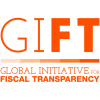
Improving public investments management through government-civil society coalitions
In achieving openness, transparency is only one side of the equation, and its impact will depend on the use given to relevant information and how to close the feedback loop to create better accountability. Government-civil society coalitions are light touch and scalable participation initiatives that enable collaboration in a semi-formal flexible setting for dialogue among different stakeholders, to achieve specific objectives of improving certain processes and policies that affect sustainable development. The coalitions bring together the GIFT agenda in different levels, as they: rely in the publication of digital tools, including the better collection of data, user-centered publication and open data; encourage the adoption of public participation mechanisms by helping break barriers related to questions about the possible effects of participation, while simultaneously establishing bases for trust and collaboration among stakeholders of different sectors; and are strengthened through peer-collaboration at the international level, as practitioners from the different countries from civil society and government co-create the mechanisms and share their specific focus, methods and lessons learned.
How it works
Governments, through their Ministry of Finance, Public Works or similar, and one or more CSOs, launch an open invitation to participate in the Rally #DataOnTheStreets. People register to the event and go through the construction projects dataset or mapping platforms published and select the ones they want to visit. Knowing the location and coordinates they go out to check out the projects, comparing what they see on the dataset and what they see on the streets. Participants document their findings through social media (Facebook or Twitter), posting creatively and engaging their own network. At the end, judges, representatives from government and civil society (coordinated by GIFT), choose the winners based on number of projects visited, creativity, engagement and, of course, extra points for data analysis.
Previous results and testimonials
Since 2017, GIFT started to support the #DataOnTheStreets Rally (initiated in Mexico by the MoF in 2016), which enables civil society-government collaboration to close the feedback loop in public investments projects management. The Rally has also been held in Chile and Colombia, with more countries joining.
The Rally helps identify strengths and gaps in the implementation of investment projects, as well as in the related data flows inside of the government. Experience shows that participants tend to be non-data specialists, expanding the audience using open data and engaging civil society in follow the money activities.
In Chile, the rally has engaged a growing community of stakeholder, including construction and private sector associations, the public works ministry and remarkably, the Supreme Audit Institution (SAI). Such new community gathered around the quest of better monitoring of public infrastructure have triggered specific actions in data gathering and monitoring from the Ministry of Public Works and the SAI.
 In Mexico, the Rally has the longest history (since 2016). From the findings and lessons learned, the MoF has also renovated the systems for public investments management and the system for reporting subnational governments projects, which improves data quality for monitoring and decision-making. All the reports of inconsistencies and possible mismanagement are directed to the social auditing office and the comptroller. From the experience there is a long-standing coalition with the co-hosting CSO (SocialTic), working on improving transparency and co-developing the How to Understand the Budget? Massive Open Online Course .
In Mexico, the Rally has the longest history (since 2016). From the findings and lessons learned, the MoF has also renovated the systems for public investments management and the system for reporting subnational governments projects, which improves data quality for monitoring and decision-making. All the reports of inconsistencies and possible mismanagement are directed to the social auditing office and the comptroller. From the experience there is a long-standing coalition with the co-hosting CSO (SocialTic), working on improving transparency and co-developing the How to Understand the Budget? Massive Open Online Course .

In Colombia, the impact of the Rally (2018 and 2019) and the Dataquest (2019) has reached the National Development Plan, including a provision to incorporate cross-cutting budgets in the budget process that match the categories of projects included in the Rally and the Dataquest, these are: gender, process for peace and inclusion of indigenous groups. Currently, as follow-up, GIFT is providing technical assistance and enabling peer-exchange to develop the cross-cutting budgets.
What you need to host your own Rally?
- Open data of public constructions being built or finished from national or subnational level projects. The data must have: descriptive name of the project, geolocation, budget allocated to the project, financial progress, physical progress.
- If available, it is best to have the data paired with visualizations, such as maps and photos.
- A government and a civil society convener. The initiative can be initiated from any side, but it is important to work together.
- A team in charge of dissemination, answering participant questions, following posts and counting points.
- Let us know you want to host a Rally!
Any question or further information?
Please contact Lorena Rivero at lorena@fiscaltransparency.net and 4 at tarick@fiscaltransparency.net
Project supported by the OGP Multi-Donor Trust Fund and the Development Bank of Latin America (CAF – Banco de Desarrollo de América).

